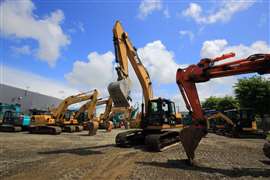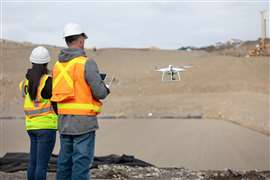Global construction risk rises
28 September 2015
According to consultant Timetric, the overall level of risk in the global construction industry picked up in the third quarter of the year. Its Construction Risk Index (CRI), rose to its highest level in four quarters as a result of a worsening risk profile across most emerging markets, which offset a marginal improvement for advanced economies.
A total of 15 out of the 50 countries in the CRI recorded improvements in their risk profiles in the third quarter, notably the US and South Korea, the former posting continued growth in its economy and construction industry, and the latter benefiting from a recent upgrade of its sovereign credit rating. As a result, the US rose by two places to 4th place in the rankings, remaining behind a top three that still comprises Sweden, Switzerland and Singapore, in that order.
There was no change at the bottom of the rankings, with Greece, Argentina and Venezuela remaining the highest risk countries in the CRI. Malaysia was the worst performer in the Q3 update, with its risk profile deteriorating in the face of a major corruption scandal engulfing the country’s prime minister and a sharp decline in the currency, the Ringgit.
Based on aggregate risk scores for the major regions, the Asia-Pacific region was the worst performer in the Q3 update. In addition to Malaysia’s problems, there are particular worries over the outlook for China’s economy, with the country’s policymakers facing the challenge of rebalancing the economy while still trying to maintain a high rate of growth.
Low oil prices continued to contribute to a worsening risk profile for the Middle East and Africa, derailing investment in new and ongoing infrastructure and buildings projects. However, Eastern Europe remained the highest risk region, in part owing to impact over the past year of the fallout from Russia’s intervention in Ukraine.
Danny Richards, lead economist at Timetric's Construction Intelligence Centre (CIC), said, “The likelihood that the US Federal Reserve will raise official interest rates in the near future, and thus bring to an end nearly seven years of ultra-loose monetary policy, will have severe implications for many emerging markets that have become accustomed to cheap foreign capital. Indeed, a return to more normal levels of the cost of borrowing in advanced economies, particularly the US, will result in capital flowing out of emerging markets and contribute to a further weakening in their currencies.”







